This With a Local supplies insider tips on things to do and see while visiting the Volcanoes National Park, Rwanda.
Disclosure: Some of the links and banners below are affiliate links, meaning, at no additional cost to you, I will earn a commission if you click through and make a purchase.
Looking for local tips for getting the best out of a visit to the Virunga Mountains and Volcanoes National Park in Rwanda? In this edition of With a Local, Charles Nkurunziza provides suggestions. He is a tour guide based in the village of Kinigi in the African country’s northwest.
Charles lives at the gateway to the region where visitors can trek with guides to see mountain gorillas.
He became active in the tourism industry by becoming a guide at Kinigi’s cultural centre. I first met Charles in 2012 while touring Rwanda. He now has the vision of building a school in Kinigi, financed through community tourism projects. Charles believes offers personalised tours with airport pick-ups.
Here he shares some of his insights into his region:
Why do you think people should come to Kinigi?
I live at Kinigi, a village of around 14,000 people, close to the Rwandan border with Congo and Uganda, and five volcanoes — Karisimbi, Bushokoro, Muhabura, Sabyinyo and Gahinga. Most people visit to see the mountain gorillas.
I think people should visit Rwanda because of its beautiful landscapes. We call our country “the land of a thousand hills.” It has green, rolling countryside and gives people opportunities to see many different species of primates and birds.
We are a democratic nation and safe to visit, that’s worth saying as perhaps not everybody knows that. Rwanda developed rapidly following the genocide of 1994.
From where I live it is easy to head into Uganda or combine a visit with safaris in Tanzania and Kenya.
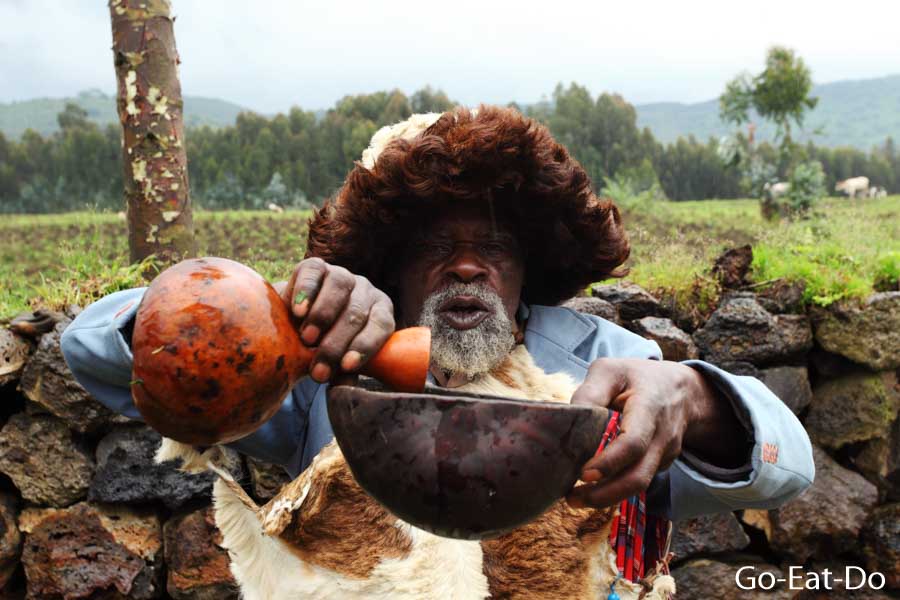
What is your favourite place in Rwanda?
My favourite local place is Kinigi because it provides insights into traditional Rwandan culture and is a lot of fun to visit. Food dances are performed at Kinigi.
I recommend people visit cooperatives, where people can buy handicrafts. A portion of the fee finances the orphanage.
Want to understand more about the genocide in Rwanda? David Belton is the author of ‘When the Hills Ask for your Blood‘ :

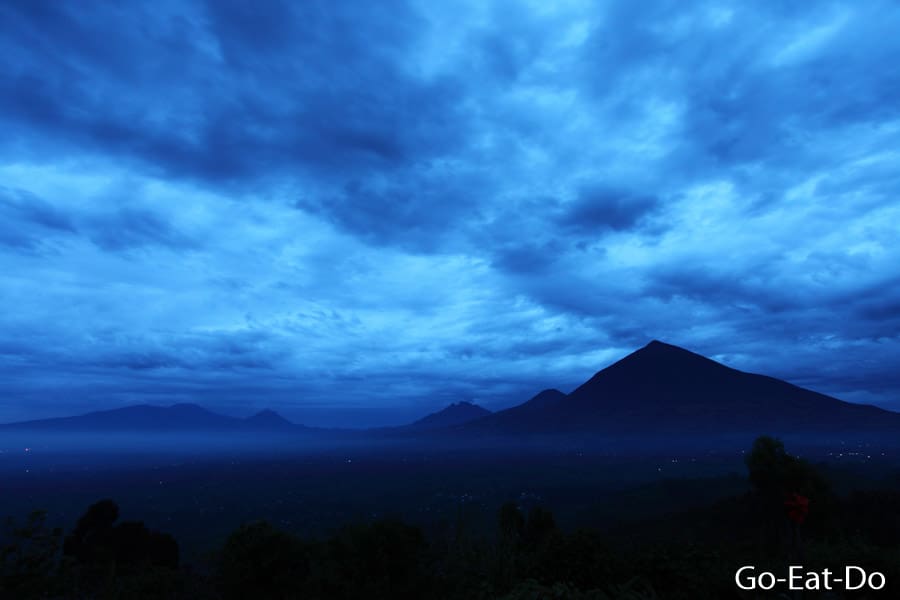
If you were going to take a guest for a meal where would you choose and why?
I usually recommend Lappallote. The staff are very friendly and take good care of customers, no matter where they are from. They serve traditional cuisine, from Rwanda, and also international dishes.
For anybody interested in trying Rwandan food I recommend Imvange, a stew, with potatoes and maize, cooked in a traditional pot. I like it because eating it makes you feel strong. People eat this before going out to cultivate the land or carry heavy things. We call it the spice of Rwanda. The Kings of Rwanda used to eat this kind of food.
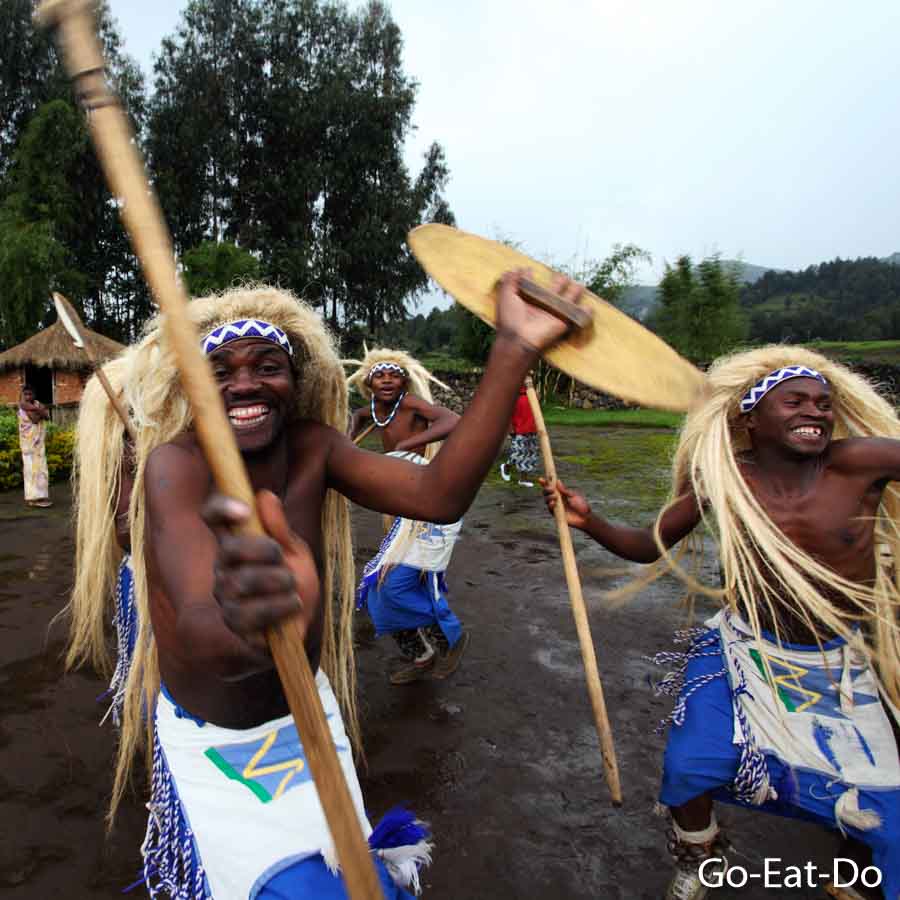
If there is a bar or cafe that you could take guests to, which would it be and why?
I like taking guests to the Inzora Café, which has branches in Kinigi, at Muzaze and also in Kigali. I like it because of their good service and reasonable prices.
They also serve urwagwa beer, made from bananas. It is used during ceremonies in Rwanda, including marriages. It is not expensive and people mix it with water.
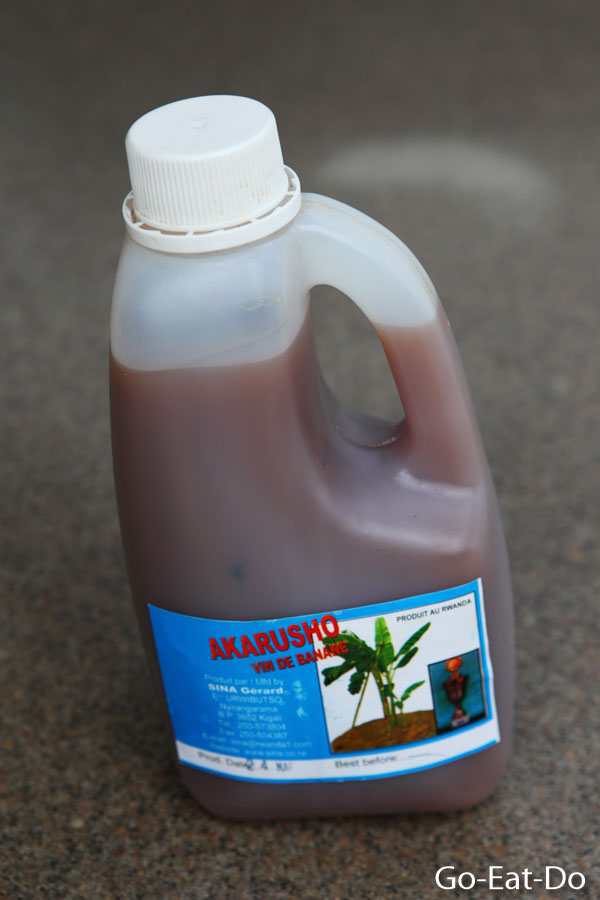
What is your favourite legend or a quirky bit of history associated with your region?
I think the story of Dian Fossey is special. She was an American zoologist and primatologist who studied mountain gorillas for nearly two decades. She is remembered for her book Gorillas in the Mist, which was turned into a film starring Sigourney Weaver as Dian Fossey:

Her tomb is at Karisoke and is one of my favourite places to visit.
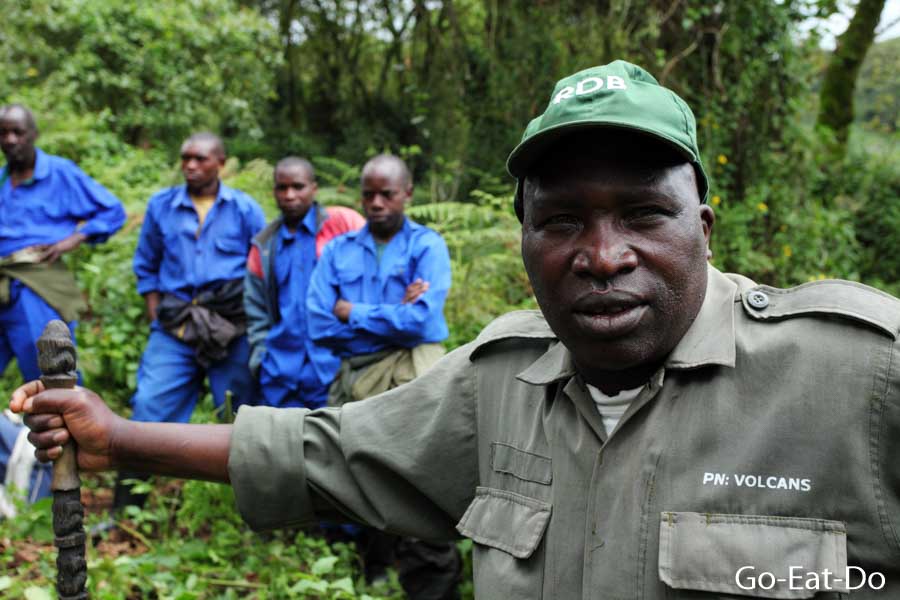
If guests can stay in Rwanda for a few days longer what do you recommend they do and see?
I would suggest a visit to the twin lakes — Burera and Ruhondo — which sit beneath steep-sided hills. People can view them from the hilltop or go out onto them using canoes.
Community tourism means an opportunity to stay with local people, in their homes, and experience how they live. A lot of people enjoy cooking local cuisine and helping to cultivate fruit and vegetables.
We have a good road infrastructure and our country is relatively small by African standards. That means visitors can see a lot during a visit, as travelling times are not long.
Want a guidebook to Rwanda? Bradt Travel Guides publishes the guidebook to ‘Rwanda (with Eastern Congo)’:

If guests are interested in history and understanding more about the country I suggest they visit the Kigali Genocide Memorial and the King’s Palace Museum at Nyanza.
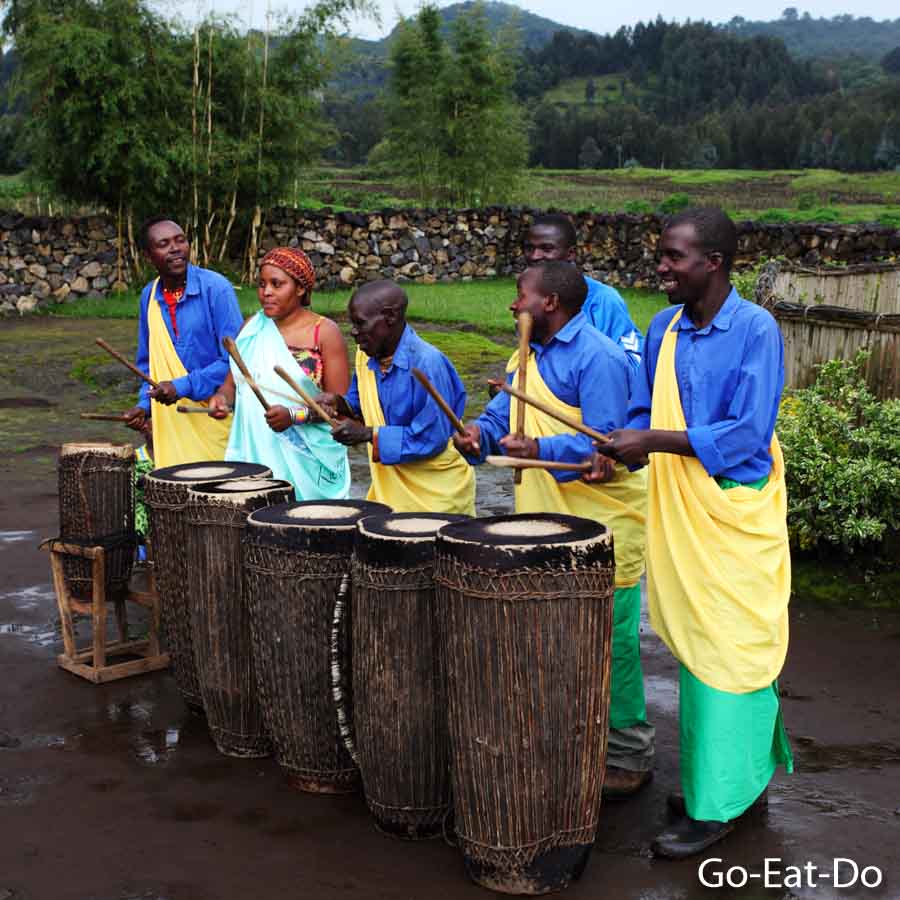
You can experience Kinigi and other attractions in Rwanda in the company of Charles via Volcanoes Trinity Guide (tel. +250 784 035 642).
Further information
To discover more about Rwanda, visit the Rwanda Tourism website.
Like the photography illustrating this article? It’s by Why Eye Photography, a photography company that specialises in travel imagery.
If you enjoyed this post why not sign up for the free Go Eat Do newsletter? It’s a hassle-free way of getting links to posts on a monthly basis.
‘Like’ the Go Eat Do Facebook page to see more photos and content.
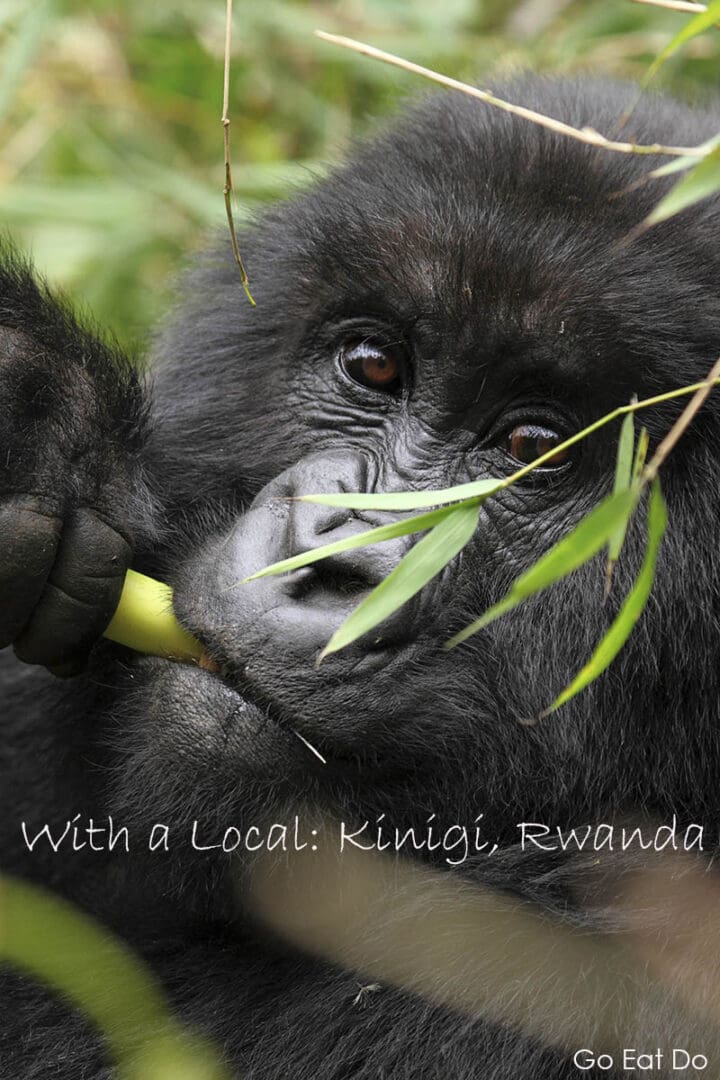
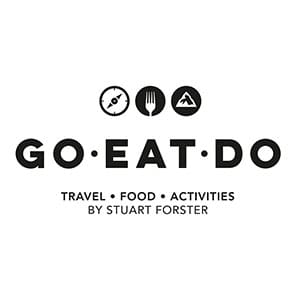



Charles Nkurunziza
July 21, 2017 at 08:19Good to see the post live. People are free to contact me and ask me what they wish to know about Rwanda and east Africa in general. We are happy to be with you!
Stuart Forster
July 24, 2017 at 09:30Hello Charles, Best wishes for your forthcoming tours.
Christine T.
May 9, 2019 at 00:59We will be in the Area in August. Do you know of any local school in the area that could benefit from books, school supplies, etc. Please let me know.
Stuart Forster
May 16, 2019 at 07:56Personally, I can’t suggest anywhere. Maybe others can help you if I put a shout out on Twitter (@goeatdo).
Julia Hammond
May 16, 2019 at 10:22If you’re going over the border into Uganda my friends run a school in Masaka and they’d be delighted to receive supplies.
Stuart Forster
May 16, 2019 at 12:44Thanks for that suggestion, Julia.